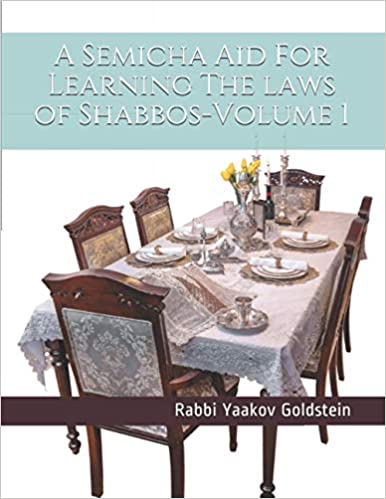

To purchase this Sefer, click here
8. The laws of Hatmanah in a case that the oven has been sealed shut with plaster:[1]
If the oven is plastered with clay around its opening, it is permitted [to leave food in it] in any scenario, even [if the food is] actually insulated (inside coals). As [when the oven is sealed] there is no suspicion that one may come to stoke [the coals], as explained [in chapter 254 Halacha 1]. Therefore, it is the custom to seal the opening of the oven with clay. In places that this is not the custom, [they] must verify that there is no [prohibition of] insulation [involved]. As well as [in order to also avoid the prohibition of Shehiyah] they need to cook the legumes and types of dough from before Shabbos to at least the point of the food of Ben Drusaiy, or [alternatively they are to make sure] that the coals be covered.
- Breaking the clay off from the opening of the oven which has been plastered shut:[2]
An oven which one places the hot food in for Shabbos and closes its opening with a sheet of wood, which is then sealed with clay, is permitted to [be opened on Shabbos even though that by doing so one needs to] break through the plastering on Shabbos, in order to remove the hot food that is in it.
The reason for the above leniency: Although the oven is attached to the ground, and it is forbidden to break a structure that is attached to the ground, nevertheless [here it is permitted], since Biblically it is only forbidden to break the body of the structure and not to break its opening, and it is only that the Sages made a decree that one may not destroy the doors of a structure which is attached to the ground. [Now even] this decree only applies when [destroying] a door made to be there permanently for some time, and thus one did not have in mind to make it on condition to break through it on Shabbos, [as in such a case] it appears like [the prohibition] of destroying [a permanent object]. However, the plastering of the [opening of the] oven which was not made at all to be there permanently, but rather to just temporarily retain the heat, and to then be removed the next day, the Sages never decreed against breaking it.
The stringent opinion: There are those which are stringent to not break the plaster through a Jew if it is possible to have it done through a gentile. Similarly [when there is no gentile available] if it’s possible to do it through a child it should not be done through an adult. If this is not possible then the adult should do it in a slightly irregular way.
The Final Ruling? The custom is like the stringent opinion.
Opening the oven on Shabbos when there are still burning coals inside of it? See The Laws of Cooking Chapter 1 Halacha 13!
|
Summary: If a gentile is available, one should have the gentile break the plaster. If there is no gentile available, then if a child is available one would have a child break it. If there is no child available, one may break it himself in a slightly irregular way.
|
__________________________________________________
[1] Admur 257:12
[2] Admur 259:7


Leave A Comment?
You must be logged in to post a comment.